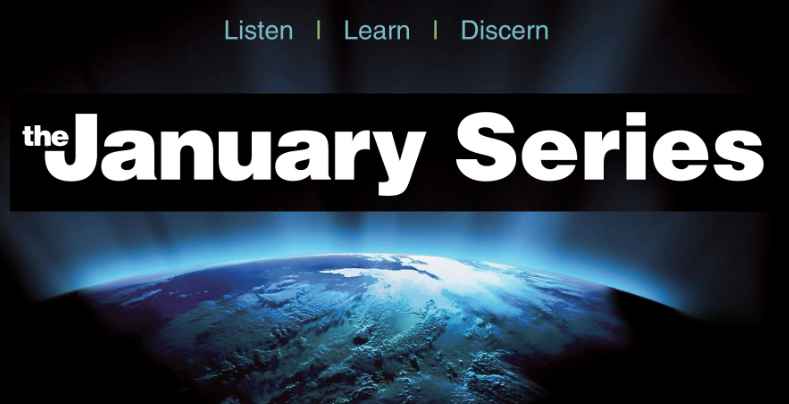Cody Fisher co-founded Preemptive Love Coalition in 2008 alongside January Series speaker Jeremy Courtney. Preemptive Love Coalition is an organization that works to provide the infrastructure and training to meet the large demand for pediatric heart surgeries in Iraq. Chimes writer Becca Bosslet spoke with him the day Courtney gave his talk.
Becca Bosslet: Why did you decide to found an organization focused on medical care?
Cody Fisher: Jeremy and I were over there in 2007 and we were working for another NGO that was providing relief and development services for the people of Iraq. We didn’t really know much about heart defects, we didn’t know much about the issues there until we started to meet children that were affected by these heart defects, and their families and communities. They came up to us asking for help.
We learned that just in our city alone there was a list of 5,000 children, all children that had been born with life-threatening heart defects. There was very little being done to help these kids. The global average, the rate of heart defects among babies is 1 out of 150 right now, but in some of these cities in Iraq that’s 1 in 10 right now.
What is unique about Preemptive Love Coalition?
One of the unique things about our work and our lives and the part that brings us the greatest joy is that we get to live alongside the people that we’re serving. It’s not like we’re living in America and then we fly in, provide a service, and then fly out. Our work is very structured to be incarnational and we want to live alongside the people we serve.
Another part of our work that we’ve been pushing ourselves towards is developing these hospitals in Iraq so that they’re fully sustainable and able to do these heart surgeries on their own. We don’t want to be around forever, we don’t want Preemptive Love coalition to be a name that’s in Iraq in 2025, we want to be out of there by then.
When we think about Iraq, many of us think of war, Saddam Hussein, and sand, but clearly those fail to describe the complexities of the people and country. When you think of Iraq, what do you think of?
You know, I honestly I think of all those same things and those are very much a part of Iraq’s history and current reality. But I also get images of personal relationships that I have over there: friends that I’ve spent years alongside, Muslim neighbors that I live alongside, and our Muslim coworker who is a dear friend of ours. I also think of all of the families that we’ve built relationships through with these heart surgeries, surgeries that have opened the door to all these relationships with different communities and different leaders within those communities, religious and political, and just also your everyday tea guys.
So, what comes to mind is relationships when I think of Iraq.
Although media coverage on Iraq has slowed since the end of the United States invasion, the end of a war is always complicated. How would you describe the parts of Iraq you live in, what do you see around you?
Again, this goes back to my limited perspective, the cities I’ve traveled to, the people I’ve spoken with.
We live in Iraq. The Americans took down Saddam Hussein who was oppressing the people. With him out of the picture all of the sudden we have these cities and communities that are able to flourish because Saddam Hussein is no longer in power. In the city we live in, we see that through economic development, skyscrapers everywhere, hotels being built, amusement parks popping up, malls coming in, western chains being brought over to the cities there. So it’s progress that comes to mind.
But when I travel to cities that we work in, it’s very difficult to see progress. Much of it is just as it was when the war ended, there are still buildings and rubble, infrastructure was just totally imploded, people are still trying to get their bearings when it comes to the healthcare system. Just daily life over there, electricity, water, all of that is very much in disarray. They’re hopeful, I think for the most part, but their reality today is still very difficult, still very broken. And it’ll be a while before they can climb out of the hole they’ve been put in.
In light of the work you have been doing and all you have been learning, what conversations do you hope American churches are having or will start having?
One of the conversations that we desire the most is a conversation about love for our enemies. And it kind of goes back to that Preemptive Love. You know it doesn’t take much to understand that the world that we live in today is a very broken, a very fallen, a very violent world. And it’s a world in which preemptive strikes are kind of the norm, they’re the way of the world but for me personally I don’t believe that that’s the way of Christ. Those that desire to follow the way of Jesus have got to come to terms with this and see what it means to love in a fallen, broken world.
And we believe our love has to be preemptive. We can’t just love in return. We can’t just love those who love us. We can’t just love in certain situations but then put our fists up in other situations. We’ve got to step out first. We’ve got to be the first to love. And of all people, I think the followers of Jesus need to not rob the world of that witness that there could be a better way.



